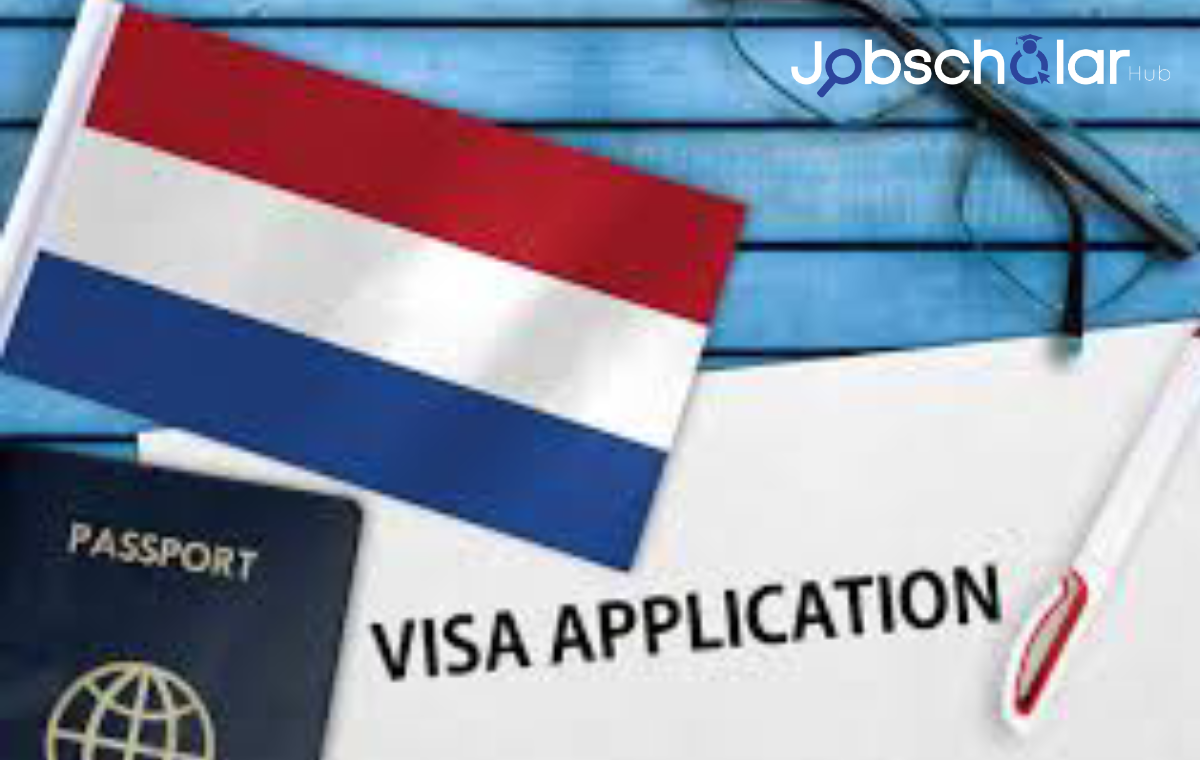The Netherlands is one of the most attractive places to be for international professionals in search of new career opportunities. With a booming economy, wonderful work-life balance, and rich multicultural society, one can hardly disregard the thousands of non-EU nationals who apply for Netherlands work visa requirements each year.
However, the path leading through Dutch work visa requirements in 2025 can be quite daunting-especially with some significant updates coming into force this year. Be it a tech professional, who envisions working in Silicon Canals in Amsterdam, a healthcare worker looking forward to seeing through one of the best medical setups in the world, or a recent graduate willing to kick start his career, having all that one needs to know about the Netherlands work visa can make or break the success story for you.
The Dutch government has made some significant changes in 2025, such as revised income levels, alterations to application procedures, and new eligibility criteria, which affect how non-EU nationals can work and live in this beautiful country. All these changes point toward the Netherlands’ consistent approach to attract the crème de la crème of global talent while ensuring fairness and transparency in its immigration system for all prospective applicants.
Who Needs a Work Visa in the Netherlands?
Before we can get into the specific requirements, it’s good to understand whether or not there’s even a need for you to get a work visa to work in the Netherlands. The answer varies substantially based on your nationality and the kind of work you’re intending to do.
The most straightforward category consists of EU, EEA, and Swiss citizens, who basically encounter a plethora of advantages when it comes to working in the Netherlands. EU citizens require neither a work visa nor a work permit in order to work in the Netherlands, thanks to free movement agreements within the member states of the EU. However, EU citizens may be expected to register with the authorities if they plan to stay for more than three months, thus enabling themselves to comply with local administrative requirements.
For the Non-EU, EEA, and Swiss citizens, a completely different situation applies. Such persons must secure a work permit to work legally in Holland; this condition is independent of short schemes or permanent arrangements. The Dutch government does not take unauthorized working into account, and the consequences of so doing may be dire, such as deportation from the country and restriction of access to other visas in the future.
There are some exceptions to these general rules. Family members of EU citizens may acquire work authorization in simplified procedures depending on their particular situation and relationship status. On another note, short-term business visitors would not need work permits for activities such as attending conferences, meetings, and negotiations, as long as the work is defined by the specific nature and duration of their visit.
Furthermore, some diplomatic personnel and international organization employees possess existing arrangements that permit their entry into the Netherlands without going through the customary work permit application procedures.
Types of Netherlands Work Permits and Visas in 2025
When it comes to picking the best permit that suits you, knowing about all types of work permits available becomes very important. Each type in the Netherlands has its own purpose according to different situations as well as career stages. They include:
1. The Tewerkstellingsvergunning (TWV):
This is a short-term work permit for employment periods up to 90 days[4]. In fact, these permits are to be used for temporary assignments, seasonal jobs, and short-term projects that employers usually apply for when they need to bring in specialized talent for a limited time or test an arrangement before entering into longer-term employment.
2. The Combined Residence and Work Permit (GVVA):
This permit is the most extensive permit that can be applied for longer-term employment. This single permit takes care of residence and work authorization concerning stays of 90 days or longer, making the work process easier for both employer and employee. In addition, GVVA has undergone substantial changes in the year 2025, which include modified income requirements and processing procedures that made it easier to enter for qualified professionals.
Related: Step-by-Step Guide on How to Apply for a Work Visa in Australia in 2025
3. The Highly Skilled Migrant Permit:
This permit is geared toward professionals drawn from high-demand fields yet meet the minimum salary levels. Such fields are in critical need of specialized talent for the Netherlands, such as technology, engineering, health, and research. Changes made to the income criteria of the permit in 2025 attest to the country’s drive to bring in the world’s best talent.
4. The EU Blue Card:
This permit is for highly qualified persons who fulfill the essential requirements on an EU-wide level. In addition, this permit has various other advantages, including freedom of movement within the EU and fast tracks to permanent residence. The Blue Card continues to be an appealing option for qualified professionals who will be able to work in several EU countries throughout their careers.
5. The Orientation Year Permit:
This permit opens valuable doors for international graduates still seeking jobs after finishing their studies. This permit for 2025 was recently opened up to more categories of international students and researchers as it recognizes the contributions that recent graduates make to the Dutch economy. The permit allows the graduates to remain in the Netherlands for one year in search of employment or to start a business.
6. The Seasonal Work Visa:
This visa for the Netherlands plans to cover the seasonal temporary workforce requirements in agriculture, tourism, and other industries such as these. Usually, such permits cover specific periods defined for the import of additional labor, such as harvest seasons or peak tourism months, but not exclusive of these.
7. Scientific Research Visa:
This visa caters for researchers who wish to work within an EU framework-under European Union guidelines. This individualized work visa is part of the recognition of the importance of scientific cooperation and research excellence in keeping the Netherlands as a top knowledge economy.
Related: Finland Work Visa Guide 2025: Requirements, Application, and Tips
Eligibility Criteria and Income Requirements
With regards to income requirements, the Netherlands has significantly updated its provisions for 2025 following changes in living costs and salary expectations in different sectors. These changes have been significant with regard to international workforce issues this year.
For applicants of the GVVA, there are income requirement bands depending on age and professional experience. For example, the number of wages derived by highly skilled migrant employees aged above 30 years has been raised to a minimum of €5,688 per month, which is a significant rise compared to past years.
This aspiration assumes that mature professionals would be earning high salaries as they identify much with the rich economy of the Netherlands. However, young people are required to earn only €4,171 monthly, which will compensate for the configuration that they would be at early stages in their careers and earning correspondingly lower amounts.
Young graduates and those Orientation Year seekers will only have to meet the income requirement of the lowest sum, which is €2,989 monthly. This sum recognizes the reality of new graduates taking time to enter the job market and entering first-level positions as they develop their careers. This requirement ensures that even an applicant with no job may be able to keep himself above ground while seeking permanent employment opportunities.
Income requirements set forth for EU Blue Card holders are €5,688 per month, while certain categories of Blue Card holders have a lower income threshold of €4,551. This is in accordance with the income requirements for the entire EU, which guarantees that Blue Card holders can further uphold a reasonable standard of living in the Netherlands.
Beyond income requirements, applicants must secure sponsorship by an employer with recognized sponsor status. Dutch employers must demonstrate that they have attempted to recruit within the EU before seeking non-EU workers, ensuring that local job markets receive priority consideration. This requirement reflects the Netherlands’ commitment to balancing international talent attraction with domestic employment protection.
The Application Process
The work visa application process is a sequence of carefully orchestrated steps, requiring attention to detail and preparation. Knowing the process helps one avoid typical pitfalls along the way and have a hassle-free visa application.
Step 1: Employer Sponsorship
This forms the foundation of most work permit applications. Employers must be registered and recognized by the Dutch Immigration and Naturalization Service (IND). This recognition process ensures that only bona fide employers are able to sponsor international workers, thus protecting both applicants and the Dutch labor market from any possible abuses.
Step 2: Preparation of Documents
A great deal of documentation needs to be prepared. Key documents include a passport that is still valid for a sufficient amount of time, satisfactory details in the employment contract about salary and job responsibilities, proof of income meeting the applicable standards, criminal record checks from your home country, health insurance, current passport photos, and a bunch of other specific documents, depending on your type of permit. The quality and completeness of your documentation can greatly affect the very chances of your application being successful.
Related: 10 Easiest Countries to Get a Work Visa in 2025
Step 3: Submission
This refers to submitting the application while applying for Dutch authorities. Most applications proceed through IND, but some permits also need UWV (Dutch Employee Insurance Agency) approval. Application fees increased too in 2025, at €405 for GVVA applications, while dependent spouses or partners pay €243. For children below 18, the payment would be €81, which marks family applications as a considerable investment.
Step 4: Interview
Interviews usually take place at the Dutch embassies or consulates in your home country. In this interview, the officials will try to ascertain whether you have a legitimate reason for relocating to the Netherlands, check whether you are financially fit, and thoroughly analyze your background to verify that you meet all the criteria. Preparation is especially important, as this will give you a chance to prove that your intentions and purpose for applying for admission are genuine, as well as that you are qualified.
Step 5: Processing Time
The processing time really varies for permits depending on the circumstances and the type of permit applied for. A typical TWV application would take around 5 weeks, while a GVVA application would take about 7-15 weeks. Highly Skilled Migrant permits tend to have quicker processing times, with most applications processed in two weeks or less, bearing testimony to the fact that these applications are on a priority list. Processing times vary from 5 weeks to 90 days, depending on the employer and the job category. This calls for a reason in planning.
Step 6: Approval and Registration
This marks the start of your adventure in the Netherlands. You need to register yourself with your municipality upon arriving and get a citizen service number (BSN), a key to unlocking all Dutch services, bank accounts, and living in society.
Employer Responsibilities
The responsibilities of a Dutch employer in sponsoring an international worker far beyond just the offering of employment. Understanding these obligations helps to ensure compliance and proper long-term relationships with employees.
Employers themselves will have to apply for permits for their international employees. Responsibility involves ensuring that all documentation is complete, accurate, and filed within the requisite time frames. Employers will have to justify their legitimate business needs and prove that the EU recruitment process was attempted before recruiting internationally.
Another important responsibility is communication with Dutch authorities. In the case of a termination, voluntary resignation, or completion of the terms of the employment contract, the employers need to immediately inform the concerned authorities about the employment termination of the employee. This requirement keeps immigration records straight and prevents unauthorized overstaying.
Ensuring compliance with Dutch labor laws and salary thresholds requires ongoing attention throughout the employment relationship. Employers must maintain salaries to the minimum or above, or provide the right working conditions, and comply with Dutch employment law. If those standards were not met, permits could be canceled as well as possible consequences on legal implications to both employer and employee.
Also, avoidance of penalties is possible only if employers strictly follow the recruitment rules that prioritizes EU candidates. They must show good faith efforts to seek local recruitment first before applying for an international worker recruitment permit. This will protect the Dutch job market and ensure that international recruitment is based on true skills shortages rather than the evasion of local hiring requirements.
Related: 5 Australian Companies That Sponsor Work Visas
Fees and Costs
The financial part of obtaining a Netherlands work visa has undergone quite a change in 2025, with fees raised depending on administrative work, overhead costs, and improved services. An understanding of such charges would enable applicants to rationally budget for their immigration journey.
GVVA applications now require a fee of €405, showing an increase over the last years. This fee covers the entire review process regarding the applications, including document verification, conducting background checks, and finally issuing the permit. The additional costs incurred are reflective of much faster processing capacity and improved services rendered directly to the benefit of applicants with faster and reliable processing.
Each dependent family member competes with a separate structure that intends to lay some ground for family immigration. Spouses and partners pay €243 for their applications, while children below 18 years only pay €81. These fees of family concern are a laudable attempt to keep families together while making the immigration services financially sustainable.
Certain categories may qualify for exemptions or reductions to fees, especially family members of EU citizens and certain categories of students. Such exemptions are a testimony to the Netherlands’ support of specific groups and the European idea of family unity.
In your budget, you ought to plan for costs existing outside your application fees. Those will consist of costs for document translations and apostille services, travel costs for embassy interviews, costs for health insurance, and sundry administrative expenses with regard to settling in the Netherlands.
Tips for Applicants
Strategic planning, careful preparation, and attention to detail are critical to successfully traversing the Netherlands work visa process. These practical tips will enhance your chances of obtaining approval for your application and settling smoothly in Dutch society.
Determining eligibility and selecting the correct permit type will be the most important first step. Every permit category has its own requirements and benefits. Therefore, getting to know which option fits best in your case steers you away from making costly errors and wasting plenty of precious time in the application process. Consider consulting immigration professionals or, alternatively, doing extensive homework on possible options before making a final choice.
Preparing all required documents carefully cannot be overstated in importance. Incomplete or incorrect documentation is among the most common reasons for an application’s delay or denial. Make thorough checklists and allow for extra time to gather documents from various quarters. Ensure that all translations conform to Dutch regulations.
Consulting with recognized employers or immigration experts provides valuable guidance throughout the process. Professional input can help you sidestep common pitfalls, familiarize you with new requirements, and help you strategize ways to bolster your application. Such investment usually pays back in terms of shorter processing times or higher chances of approval.
Since processing times vary, planning ensures you do not have gaps in employment or missed opportunities. Start the application process much before the intended start date, allowing adequate time for any unforeseen delay or requests for additional documents. The early planning also gives one scope to improve areas that may appear weaker in their application.
Related: Luxembourg Skilled Worker Visas: How to Apply in 2025
Conclusion
The Netherlands work visa landscape in 2025 offers exciting opportunities for qualified international professionals, despite increased complexity and higher financial requirements. The updated income thresholds, streamlined application processes, and expanded permit categories reflect the country’s continued commitment to attracting global talent while maintaining high standards for immigration.
Success in obtaining a Netherlands work visa requires thorough preparation, careful attention to requirements, and strategic planning throughout the application process. The investment in proper preparation, whether through professional consultation or meticulous self-research, typically pays significant dividends in the form of faster processing and successful outcomes.
As the Netherlands continues to evolve its immigration policies, staying informed about changes and requirements remains essential for anyone considering a career in this dynamic and welcoming country.
Frequently Asked Questions
Processing times vary depending on the permit type. TWV applications typically take up to 5 weeks, GVVA applications require 7-15 weeks, and Highly Skilled Migrant permits usually process within 2 weeks. Overall processing times can range from 5 weeks to 90 days depending on your employer and job category.
The minimum income requirements have increased in 2025. Highly skilled migrants over 30 must earn at least €5,688 per month, those under 30 need €4,171 per month, and recent graduates require €2,989 per month. EU Blue Card holders need €5,688 per month, with some categories qualifying for the reduced threshold of €4,551.
Yes, most Netherlands work visas require employer sponsorship, meaning you need a job offer from a recognized Dutch employer before applying. The employer typically initiates the application process on your behalf. However, the Orientation Year Permit allows recent graduates to stay in the Netherlands for one year while searching for employment.
Yes, family members can typically accompany you, but they need separate applications with their own fees. Spouses and partners pay €243, while children under 18 pay €81 for their dependent permits. Family members’ eligibility depends on your visa type and their relationship to you, so specific requirements should be verified for your situation.






